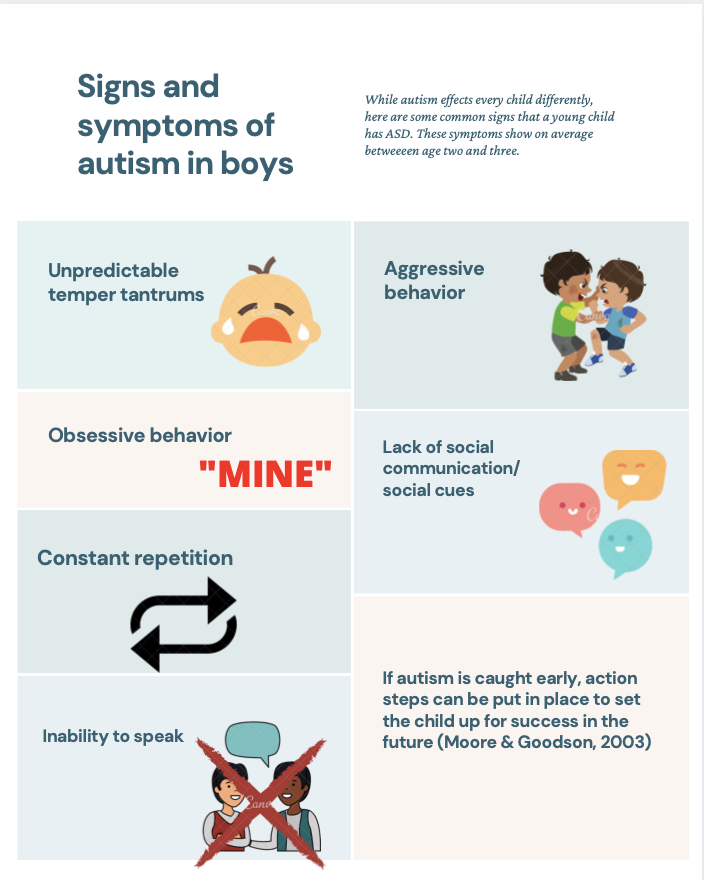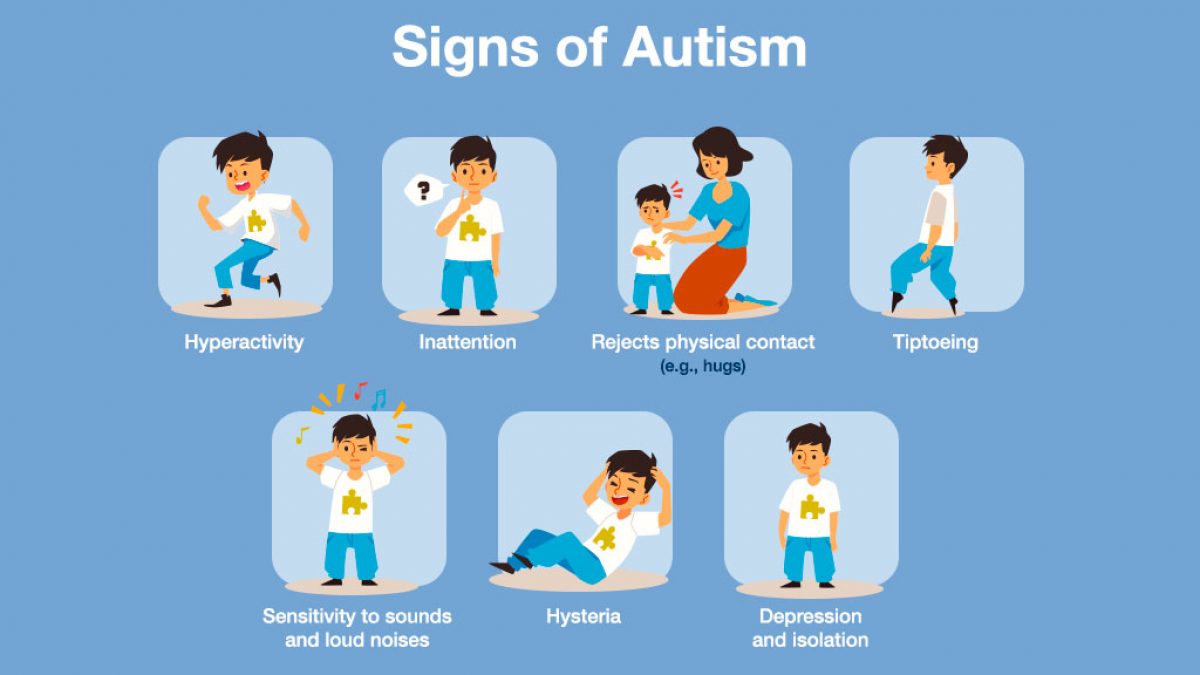Navigating sensory overload with support from Autism Spectrum Therapies
Navigating sensory overload with support from Autism Spectrum Therapies
Blog Article
Secret Symptoms And Signs to Recognize in Individuals With Behavior Autism
When you come across someone with behavioral autism, identifying vital indications and symptoms is essential. Furthermore, sensory level of sensitivities can lead to overwhelming experiences.
Challenges in Social Interactions
When you interact with someone on the autism spectrum, you might see they have problem with social cues and communication. These difficulties can make social communications feel frustrating for them. You might see them staying clear of eye call or standing also close or as well far away during conversations, which can produce misconceptions. They may not detect body movement or faces, making it harder for them to determine how others are feeling.
Additionally, you may locate that they favor regimens and familiar setups, which can restrict their determination to take part in brand-new social scenarios. They might speak concerning their rate of interests in great information without noticing if you're interested when they do involve. This can lead to prejudiced discussions that leave you feeling disconnected. Understanding these obstacles can help you approach communications with compassion and patience, promoting an extra comfy setting for both of you.
Problem With Verbal and Non-Verbal Interaction

Non-verbal interaction can be a lot more tough. You might see a lack of eye contact or restricted use gestures, which can make interactions really feel awkward. Facial expressions may not constantly align with the conversation, causing complication concerning their feelings. Acknowledging these indications is essential, as it aids you much better assistance and involve with individuals on the autism range. By recognizing their interaction difficulties, you can promote extra purposeful connections and offer a much more supportive environment.
Repeated Habits and Routines
Communication obstacles typically accompany various other indications of autism, such as repeated actions and a strong preference for routines. You could observe that people with autism commonly participate in specific, repeated activities, like hand-flapping, shaking, or repeating expressions. These habits can offer convenience and a sense of control in a typically overwhelming world.
When they adhere to a structured schedule,Regimens are similarly important; several individuals thrive. You may discover that modifications to these routines can result in substantial distress. If they have a daily routine of consuming breakfast at a certain time or adhering to a certain path to college, any type of disruption can trigger stress and anxiety.
Recognizing these patterns helps you understand their habits and give support. By accommodating their requirement for regular and allowing recurring actions, you can develop a more comfy atmosphere that eases their challenges.
Sensory Sensitivities

Typical Sensory Triggers
Sensory sensitivities can substantially affect every day life for individuals with autism, as specific stimuli frequently trigger overwhelming reactions. Typical sensory triggers include loud sounds, intense lights, and solid smells. You may discover that unexpected audios, like alarms or alarms, create anxiousness or distress. Fluorescent lights in shops can really feel rough and uneasy. Structures can additionally play a significant function; rough fabrics or specific food appearances may be intolerable for you. Furthermore, crowded places can overwhelm your senses, making it hard to focus or unwind. Understanding these triggers can my site help you handle your atmosphere much better. By knowing what affects you, you can take actions to reduce discomfort and boost your day-to-day experiences.
Behavior Responses Clarified
Understanding your behavioral actions to sensory sensitivities is vital, as they typically disclose exactly how you connect with the globe. You could discover that specific sounds, lights, or textures bewilder you, leading to anxiousness or pain. When encountered with these stimulations, you could take out, cover your ears, and even react strongly. These reactions aren't just traits; they're your means of handling overstimulation. You may also discover yourself seeking particular sensory experiences, like deep pressure or quiet settings, to help ground on your own. Acknowledging these patterns aids you comprehend your demands far better and can assist how you interact them to others. By recognizing your sensory level of sensitivities, you can work in the direction of creating an atmosphere that feels extra comfortable and convenient for you.
Coping Approaches Summary
Identifying your sensory level of sensitivities is simply the initial action; now it's time to explore coping strategies that can assist you handle those experiences successfully. Begin by creating a sensory toolkit customized to your needs. Developing an organized routine browse around this web-site can also provide predictability, lowering anxiousness around sensory overload.
Limited Interests and Emphasis
While several individuals establish a wide array of passions, those with autism commonly demonstrate restricted passions and an intense concentrate on certain topics. You could see that somebody with autism can spend hours diving into their favorite topic, whether it's a specific kind of train, a certain film, or a clinical idea. This extreme emphasis isn't simply a hobby; it can become a central part of their identification and social communications.
You may locate that conversations focus on these interests, and they might struggle to participate in more comprehensive topics. For them, these focused interests supply comfort and a sense of proficiency. While it's important to urge exploration of brand-new topics, respecting their interests is just as crucial. By recognizing and acknowledging these limited interests, you can foster an encouraging setting where they feel valued and comprehended, permitting even more significant links and communications.
Emotional Regulation Difficulties
Individuals with autism usually face difficulties in psychological regulation, which can be affected by their extreme emphasis on specific interests. You might observe that when a person is deeply taken part in a favored task, they can experience strong emotions, whether exhilaration or disappointment. When things do not go as prepared., this intensity often makes it tough for them to move equipments or handle their feelings - Aba Therapist Near Me.

Variability in Developmental Turning Points
When it comes to developing landmarks, you'll notice that individuals with autism frequently show a broad range of variability. You may see a kid stand out in language skills but struggle with social communications.
It's essential to identify that each person's journey is unique. Observing these patterns can aid you comprehend their staminas and needs much better.
Frequently Asked Questions
Just How Is Autism Identified in Children and Grownups?
To diagnose autism in adults and kids, experts evaluate actions, communication abilities, and social interactions. They frequently use standardized examinations, interviews, and monitorings to identify if a specific satisfies the criteria for autism range disorder.
Are There Various Types of Autism Range Disorders?
Yes, there are various kinds of autism range disorders, consisting of Asperger's disorder and pervasive developing disorder-not or else specified. Each kind varies in seriousness and characteristics, so comprehending these differences can assist you far better support individuals with autism.
What Treatments Are Effective for Individuals With Autism?
When considering reliable treatments for individuals with autism, you'll discover options like Applied Behavior Analysis, speech treatment, and work-related treatment. Each approach can assist boost interaction, social skills, and day-to-day functioning tailored to private demands.
Can Individuals With Autism Lead Independent Lives?
Yes, individuals with autism can lead independent lives. With the right support, skills training, and sources, you can aid them create self-sufficiency, manage day-to-day tasks, and flourish in different atmospheres, cultivating their freedom.
How Can Families Assistance Loved Ones With Autism?
You can support your loved ones with autism by developing a structured atmosphere, motivating their rate of link interests, exercising persistence, fostering interaction, and advertising social abilities. Celebrate their accomplishments, regardless of exactly how small, and build a supportive community.
Although many individuals on the autism range can use and understand language, they typically deal with considerable difficulties with both spoken and non-verbal interaction. Acknowledging these indications is vital, as it assists you much better assistance and engage with individuals on the autism range. You may discover that individuals with autism typically engage in specific, repetitive actions, like hand-flapping, rocking, or duplicating expressions.Sensory sensitivities can significantly influence day-to-day life for individuals with autism, as specific stimuli frequently trigger frustrating reactions.When it comes to developmental milestones, you'll see that people with autism typically show a vast variety of variability.
Report this page